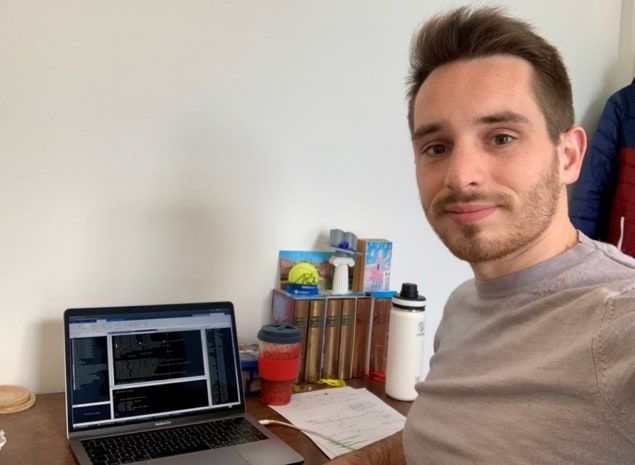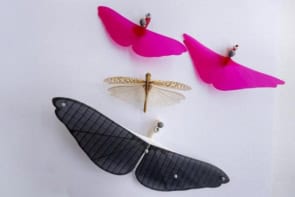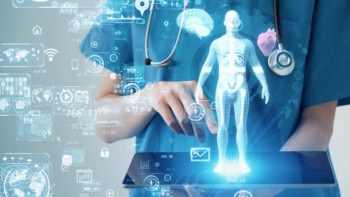Sam Vennin is a biomechanical engineer research fellow at Guy’s and St Thomas’ Biomedical Research Centre and King’s College London, UK.
This post is part of a series on how the COVID-19 pandemic is affecting the personal and professional lives of physicists around the world. If you’d like to share your own perspective, please contact us at pwld@ioppublishing.org.

On Thursday 12 March I went back to school to give a talk as part of British Science Week. The message I tried to convey to the audience of 10-year-old children was simple: to keep healthy, it is important to have a healthy lifestyle and exercise regularly. If they did not get why back then, I am sure they will by the end of this pandemic!
That was only one week before schools were shut down in the UK and the government recommended to all of those who could do to work from home. Our university had preceded them by asking non-clinical staff not to come to St Thomas’ Hospital, the central London hospital where I work that also treats many patients. As our head of school stated, being fully embedded within the hospital offers a fantastic environment for research, but can present additional health risks in times like these.
To be fair, there was a slow build up to this and we had seen it coming. First were the pods I noticed one day right outside the hospital entrance on my way to meetings with my supervisors. It turned out these were where suspected COVID-19 patients would go first to avoid entering the hospital premises and potentially contaminate other people. There were the students I met in the lift while I knew they should be having a tutorial I used to teach. They said that they thought it had been cancelled. But the strongest hint was when one of my supervisors asked to schedule our next few meetings on Skype, as the school would probably be closing soon. Two hours later we all received the e-mail from our head of school.
So ever since, I have been working from home while trying to stay away from the news as much as possible. I still saw the ExCeL centre in East London, where I helped my school to present a New Scientist Live stand on the future of surgery last October, get turned into the NHS Nightingale Hospital London. As for the hospital I work in, where Florence Nightingale established the first professional nursing school in the world, it probably looks more like a war zone now than a workplace…
My work is highly interdisciplinary, ranging from designing new technologies to help clinicians assessing cardiovascular status, to gaining more fundamental understandings of hypertension, and a lot of it depends on collaborations with clinicians and doctors. Since the beginning of the outbreak, all cardiovascular MRI scans in my hospital have been cancelled, putting on hold most of the clinical studies I am involved in. Similarly, I haven’t heard from some clinical supervisors and collaborators, who I assume have been requisitioned or have volunteered to help. I am trying to finish the papers and software I was working on, hoping that they can add their parts and insights later. I also communicate with my engineering supervisor and am watching out for ways to help.
Physics in the pandemic: ‘My job is not amenable to working from home’
In the meantime, as countries are being shut down and borders drawn up, some of us have had to make a choice: staying in London or going back home. It got to the point where my dad back in France asked me whether I preferred to be treated in France or in the UK should I get the virus. I decided to stay, thinking I would probably feel more useful here, but some of my colleagues decided to go back to Mexico or India. Others are facing the prospect of taking their PhD viva online, dealing with cell culture problems or juggling working from home with having to care for children or elder relatives.
I think research, like so many aspects of our lives, will come through deeply transformed from the current situation. For example, the collaborative environment between research groups is amazing, be they working on the virus or on engineering solutions to help clinical staff on the frontline. I am also pleased by the focus on the importance of science in decision making and engineering in healthcare. These are for me a cause for optimism moving forward!




